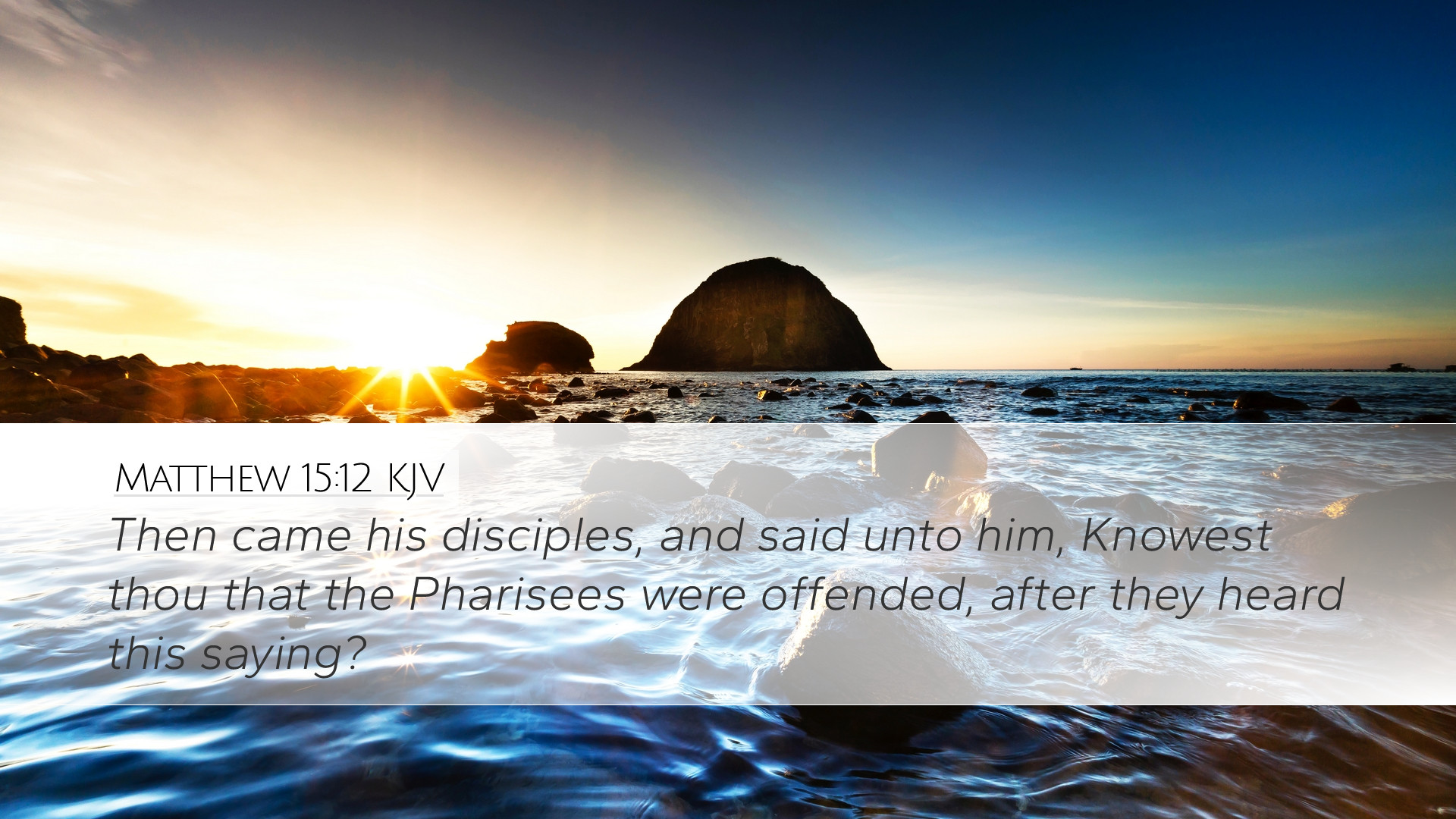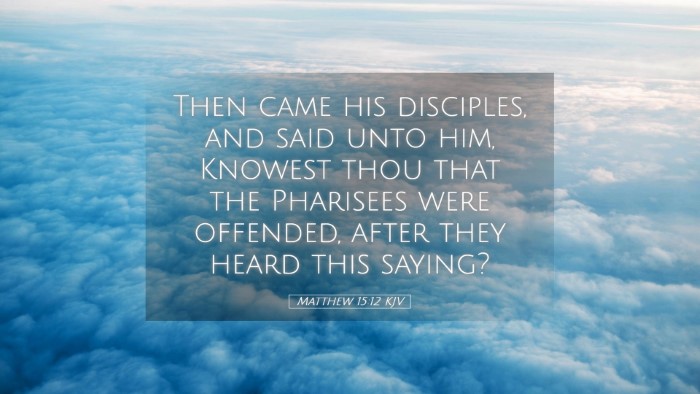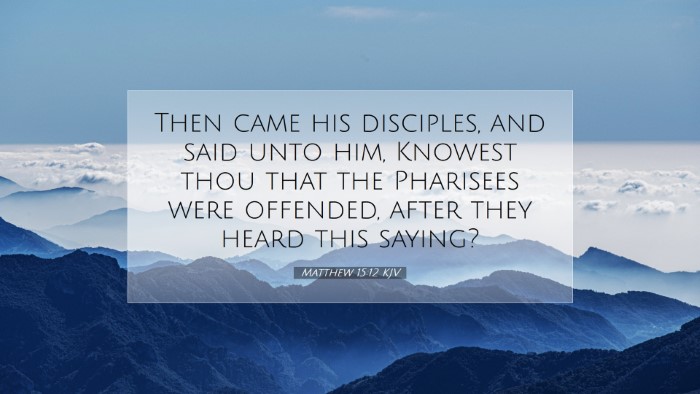Commentary on Matthew 15:12
Verse: Matthew 15:12
"Then came his disciples, and said unto him, Knowest thou that the Pharisees were offended, after they heard this saying?"
Introduction
This verse serves as a pivotal moment in the interactions between Jesus and the religious authorities of His time. The disciples express concern about the offense taken by the Pharisees, which speaks volumes about the nature of Jesus' ministry and His approach to traditional religious leaders.
Contextual Analysis
In the preceding verses, Jesus challenges the Pharisees regarding their traditions and human doctrines that contradicted the commandment of God. This confrontation sets the stage for the disciples’ report regarding the Pharisees' offense. Understanding this context is crucial for interpreting the gravity of the situation.
The Disciples' Concern
Matthew Henry emphasizes that the disciples were surprised and perhaps fearful of the backlash from the Pharisees. They recognized the considerable influence the Pharisees had among the people. This concern illustrates a common tension in ministry—the fear of offending powerful religious figures.
Albert Barnes notes that the disciples show a lack of comprehension regarding Jesus' mission. They were still aligned with the notion that pleasing the Pharisees was important. This reflects early misapprehensions about the gospel's implications for both Jew and Gentile and life in the spirit versus the law.
Jesus' Response
While the disciples viewed offense as a negative outcome, Jesus' response was straightforward and unyielding. Adam Clarke elaborates that Christ often engaged in actions that rocked the religious status quo, prioritizing God’s truth over societal acceptance. His ministry was not to cater to the offended but to reveal deeper truths about faith.
Implications for Ministry
The reaction of the Pharisees and the disciples' concern prompts a reflection on the nature of biblical ministry. Today, pastors and theologians are reminded that the message of the gospel often comes with offense, especially when confronting established traditions or cultural norms. This evocation of offense invites deeper questions about the priorities of a faithful witness.
As noted by Henry, ministers must not seek to please men, but God. Jesus exemplifies this by standing firm even when faced with criticism and rejection. The fear of offending should not hinder the spread of the gospel nor the call to truthfulness in ministry.
Application for Believers
For modern believers, this verse serves as a reminder of the challenges in following Christ. It underscores the importance of discernment and courage in upholding God’s word amidst societal opposition. The call to faith is often at odds with mainstream ideologies that emphasize tolerance over truth. This passage instills the necessity of maintaining integrity in the face of potential backlash.
Theological Reflections
This encounter also prompts theological reflections about the nature of offense within the Christian faith. Paul writes about the gospel being a stumbling block (1 Corinthians 1:23), which corroborates the reality that true faith can be irksome to those who are rooted in human tradition and self-righteousness.
Furthermore, Adam Clarke points out that the reactions of the Pharisees highlight the tension between law and grace. As the gospel breaks free from legalistic confines, it invites belief that sometimes stands contrary to societal expectations.
Conclusion
Matthew 15:12 serves as more than just a historical account; it is a clarion call to analyze the nature of offense in the light of the gospel. As ministers, scholars, and students of the Word, this verse demands a deep understanding that proclaiming the truth of Christ may lead to misunderstanding, rejection, and even offense.
May we learn from Jesus' example to speak the truth boldly while embracing the cost of following Him. And in our endeavors, let us remember that the gospel, while it may offend, is ultimately the message of salvation and hope for all who believe.


